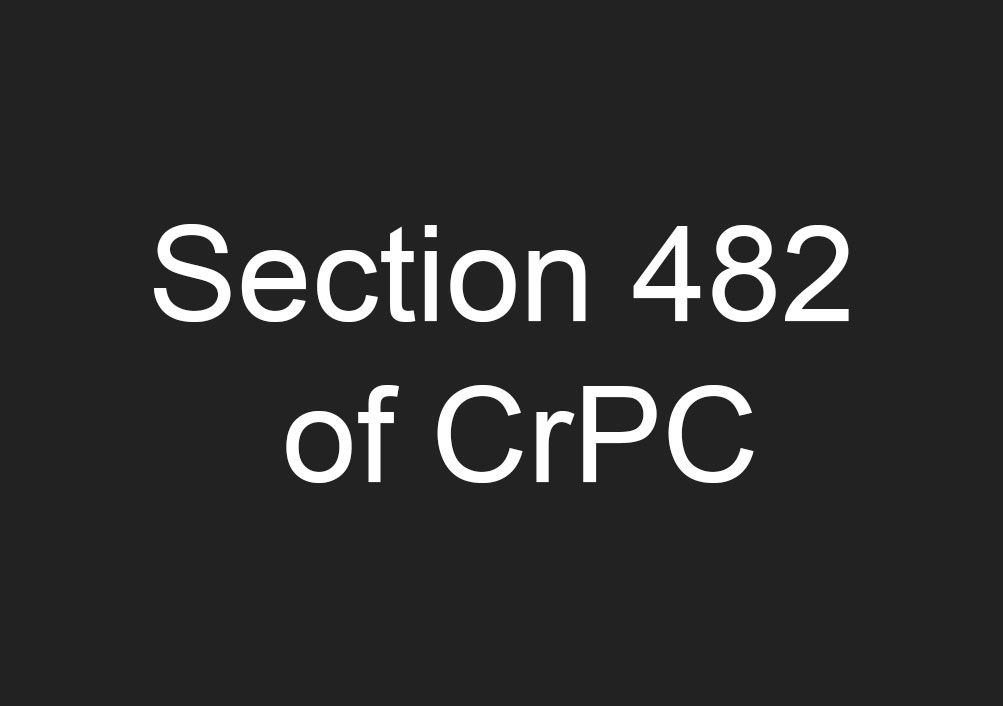In CRM-M-5820-2020-PUNJ HC- Sec.482 CrPC empowers High Court to entertain applications not contemplated in Code of Criminal Procedure if ends of justice require that Court can invoke extraordinary powers: P&H HC Justice Vivek Puri [25-05-2022]

Read Order: Amit v. State of Haryana and Another
Monika Rahar
Chandigarh, May 26, 2022: While dealing with a quashing plea in a POCSO Act matter wherein the perpetrator and the victim solemnized their marriage, the Punjab and Haryana High Court has held that Section 482 Cr.P.C. empowers the High Court to entertain applications which are not contemplated in the Code of Criminal Procedure, if it is felt that the ends of justice will require that the Court can invoke the extraordinary powers.
The Bench of Justice Vivek Puri said, “In the event, the Court is satisfied that in order to secure the ends of justice, it should interfere under its inherent powers, it ought to do so”. The Bench also added that the inherent power vested in this Court under Section 482 of the Code is not to be invoked as a matter of routine but to prevent the abuse of process of Court and to secure ends of justice.
The petitioner approached the High Court by way of instant petition under Section 482 of the Cr.P.C. invoking its inherent jurisdiction for quashing of an FIR registered under Sections 354-A, 506 of the Indian Penal Code and Section 8 of the Protection of Children From Sexual Offence Act, 2012 (POCSO Act) based on a compromise between the parties.
The FIR was registered on the statement on the statement of the second respondent alleging that when she went to the house of her sister, the petitioner committed bad acts and outraged her modesty.
In terms of an Order of February 2020, the parties were directed to appear before the Illaqa Magistrate/trial Court for recording their respective statements with regard to the compromise/settlement.
The Counsels for both the parties admitted the factum of the agreement. The Court was also informed that the petitioner and the second respondent solemnized marriage with each other and were living happily as a married couple. In fact, they were also going to be parents to their first child.
Thus, counsel for the parties were ad idem that as an amicable settlement was effected between the private parties and that there was no objection if the FIR and subsequent proceedings were quashed.
Considering this position, the Court opined that the inherent power vested in the High Court under Section 482 of the Code is not to be invoked as a matter of routine but to prevent the abuse of process of Court and to secure ends of justice.
This section, Justice Puri added, gives the power to the High Court to entertain applications which are not contemplated in the Code of Criminal Procedure, in the event, it is felt that the ends of justice will require that the Court can invoke the extraordinary powers which are to be exercised with restraint and not lightly.
Therefore, the Court held that in the event, the Court is satisfied that in order to secure the ends of justice, it should interfere under its inherent powers, it ought to do so.
Coming to the present case, the Court observed that the second respondent was aged about 17 years and 10 months at the time of occurrence, however, after attaining the age of majority, she solemnized marriage with the petitioner and the couple was stated to be residing happily with each other. Furthermore, it was observed that the second respondent also conceived.
Hence, in light of the above, the bench stated that the possibility of conviction was remote and bleak and continuation of criminal case would cause injustice not only to the petitioner but also to the second respondent, who was now legally wedded wife of the petitioner.
As such, the Court was of the considered opinion that it was a fit case for exercising the inherent jurisdiction of the Court under Section 482 of the Code, so as to secure the ends of justice in the light of amicable settlement which was effected between the parties. In such a situation, continuation of the prosecution would result in sheer abuse of process of law, the Court held while quashing the afore-said FIR.
Sign up for our weekly newsletter to stay up to date on our product, events featured blog, special offer and all of the exciting things that take place here at Legitquest.




Add a Comment